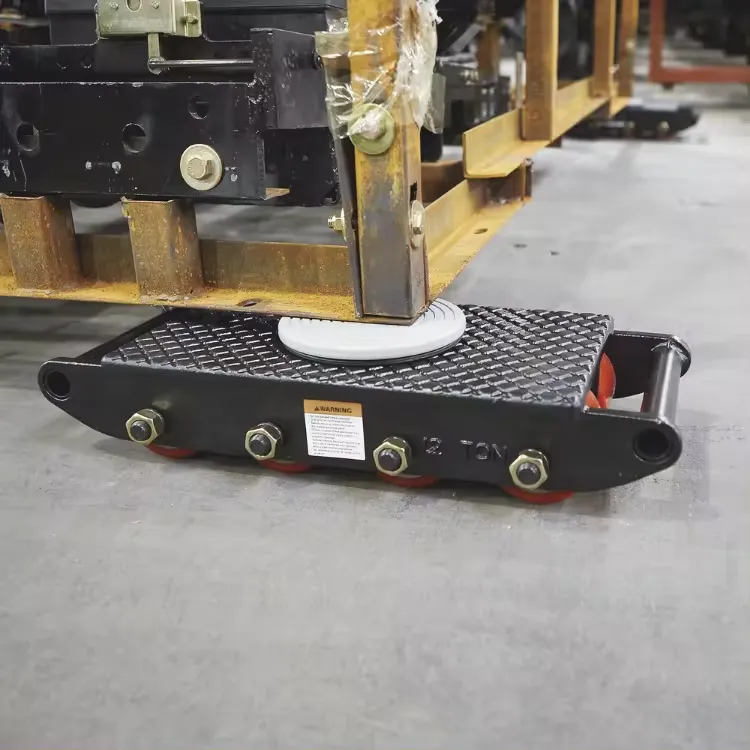Extending Gantry Crane for Enhanced Efficiency in Material Handling Operations
Exploring Telescoping Gantry Cranes Advantages and Applications
In the world of material handling and construction, efficiency and adaptability are paramount. One of the innovations that stand out in this domain is the telescoping gantry crane. This impressive piece of equipment offers unique features that make it particularly versatile, providing solutions across various industries.
What is a Telescoping Gantry Crane?
A telescoping gantry crane is a type of lifting device designed to move heavy materials and equipment across horizontal distances. It consists of a movable framework, typically mounted on wheels or rails, allowing it to traverse different work areas. The telescoping aspect refers to its ability to extend and retract, much like a telescope. This functionality provides operators with the flexibility to adjust the height and reach of the crane to accommodate various loads and operational requirements.
Key Advantages
1. Space Efficiency One of the primary advantages of telescoping gantry cranes is their ability to maximize space utilization. Their adjustable height allows for operations in environments where headroom is limited. This makes them perfect for use in warehouses, manufacturing plants, or outdoor settings with overhead constraints.
2. Versatility The extendable feature enables these cranes to handle a wide range of loads and materials. Whether lifting large machinery, shipping containers, or heavy construction materials, a telescoping gantry crane can adapt to different sizes and weights, making it invaluable across various applications.
3. Mobility With wheels or tracks, these cranes can be moved easily from one location to another, enhancing operational efficiency. This mobility means that a single unit can serve multiple workstations or job sites, reducing the need for multiple cranes and lowering overall costs.
4. Ease of Use Modern telescoping gantry cranes are designed with user-friendly controls and safety features, making them simple for operators to handle. Tools such as remote controls, automated systems, and safety brakes mean that even inexperienced personnel can use these cranes effectively with proper training.
telescoping gantry crane

5. Cost-Effectiveness Investing in a telescoping gantry crane can lead to significant cost savings over time. Their durability, mobility, and ability to perform a variety of tasks reduce labor costs and increase productivity. Additionally, since they can be used in different configurations across various projects, companies can avoid purchasing multiple specialized cranes.
Applications in Different Industries
Telescoping gantry cranes find applications in several sectors due to their versatility
- Construction In construction sites, these cranes are used to lift prefabricated components, steel beams, or concrete panels. Their capability to extend allows them to operate in tight spaces where traditional cranes would be ineffective.
- Manufacturing In manufacturing environments, telescoping gantry cranes can be employed to move heavy machines or assembly line components. Their adaptability helps streamline manufacturing processes and reduce downtime.
- Shipping and Logistics These cranes play a crucial role in the loading and unloading of containers at shipping docks. Their ability to reach into shipment holds or stack containers efficiently saves time and space.
- Maintenance and Repair In facilities where large equipment requires maintenance, telescoping gantry cranes provide an effective solution for lifting heavy parts or machinery, making repair work safer and more efficient.
Conclusion
In summary, telescoping gantry cranes have revolutionized the material handling landscape with their unique design and capabilities. Offering space efficiency, versatility, mobility, ease of use, and cost-effectiveness, these cranes are indispensable across numerous industries. As technology continues to advance, the design and functionality of these cranes will likely evolve, providing even greater solutions for heavy lifting and material transport. Ultimately, adopting telescoping gantry cranes can help businesses optimize their operations, improve safety, and enhance productivity in an increasingly competitive market.
-
Portable 2000 lb Gantry Crane | Heavy-Duty & AdjustableNewsAug.30,2025
-
Versatile Lifting Solutions with Gantry and Overhead CranesNewsAug.29,2025
-
The Versatile Mobile Gantry Crane SolutionNewsAug.29,2025
-
Reliable Movement with Heavy Machinery Skates and RollersNewsAug.29,2025
-
Reliable Lifting Performance with 2000 lb Gantry Crane and 2 Ton Overhead SystemsNewsAug.29,2025
-
Maximize Lifting Efficiency with PML Magnetic LiftersNewsAug.29,2025
-
Efficient Relocation Starts with Reliable Machinery MoversNewsAug.29,2025
